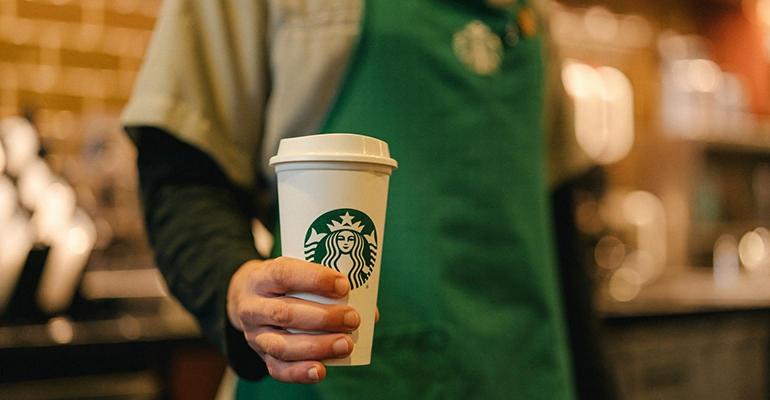Starbucks told employees on Monday that the Seattle-based coffee giant will be closing 16 stores due to health and safety concerns by the end of the month, as first reported by the Wall Street Journal. The company confirmed that six stores in Los Angeles, two stores in Portland, six stores in Seattle, one in Washington, D.C. and one in Philadelphia will permanently close due to drug use by customers and members of the public. The employees of these stores will be transferred to new locations.
“We read every incident report you file — it’s a lot,” U.S. operations executives Debbie Stroud and Denise Nelson stated in a letter to employees on Monday. “Creating a safe, welcoming, and kind third place is our top priority. Because simply put, we cannot serve as partners if we don’t first feel safe at work.”
The letter reminded managers that they have leeway to close bathrooms, limit seating and reduce operations in response to safety concerns. This policy has always been in place during the era of the company’s well-known “third place” policy of open bathrooms and marketing of Starbucks stores as community spaces.
This is one of the first policy shifts and changes coming to the company after Starbucks interim CEO Howard Schultz announced a new era of “significant reinvention” for the brand this week, which among other items, addresses balancing store safety with a community atmosphere. In June, Schultz directly addressed the open bathroom policy at The New York Times’s DealBook D.C. policy forum, saying he doesn’t know if they can keep bathrooms open.
“We have to harden our stores and provide safety for our people,” he said.
Schultz himself first introduced the open bathroom policy in 2018 during his first tenure as CEO, saying at the time that it was not his intention to turn Starbucks stores into public restrooms.
“We don’t want anyone at Starbucks to feel as if we are not giving access to you to use the bathroom because you are ‘less than,’” Schultz said when he announced the policy. “We want you to be ‘more than.’”
Since then, the controversial policy has led to Starbucks installing needle disposal boxes in 25 U.S. stores in 2019 in response to a petition signed by Seattle-area employees, which cited safety concerns from employees that had allegedly been poked by hypodermic needles while cleaning bathrooms.
A Starbucks spokesperson clarified with Nation’s Restaurant News that “no changes have been made to company-wide policies” in the wake of the closures and that the open bathroom policy still remains in place.
“This announcement of recommitment is really addressing a combination of challenges [faced by employees], everything from substance abuse and economic unrest to mental health crises and chronic homelessness,” the spokesperson said. “All of these things combined have created challenges.”
Contact Joanna Fantozzi at [email protected]
Follow her on Twitter: @JoannaFantozzi

